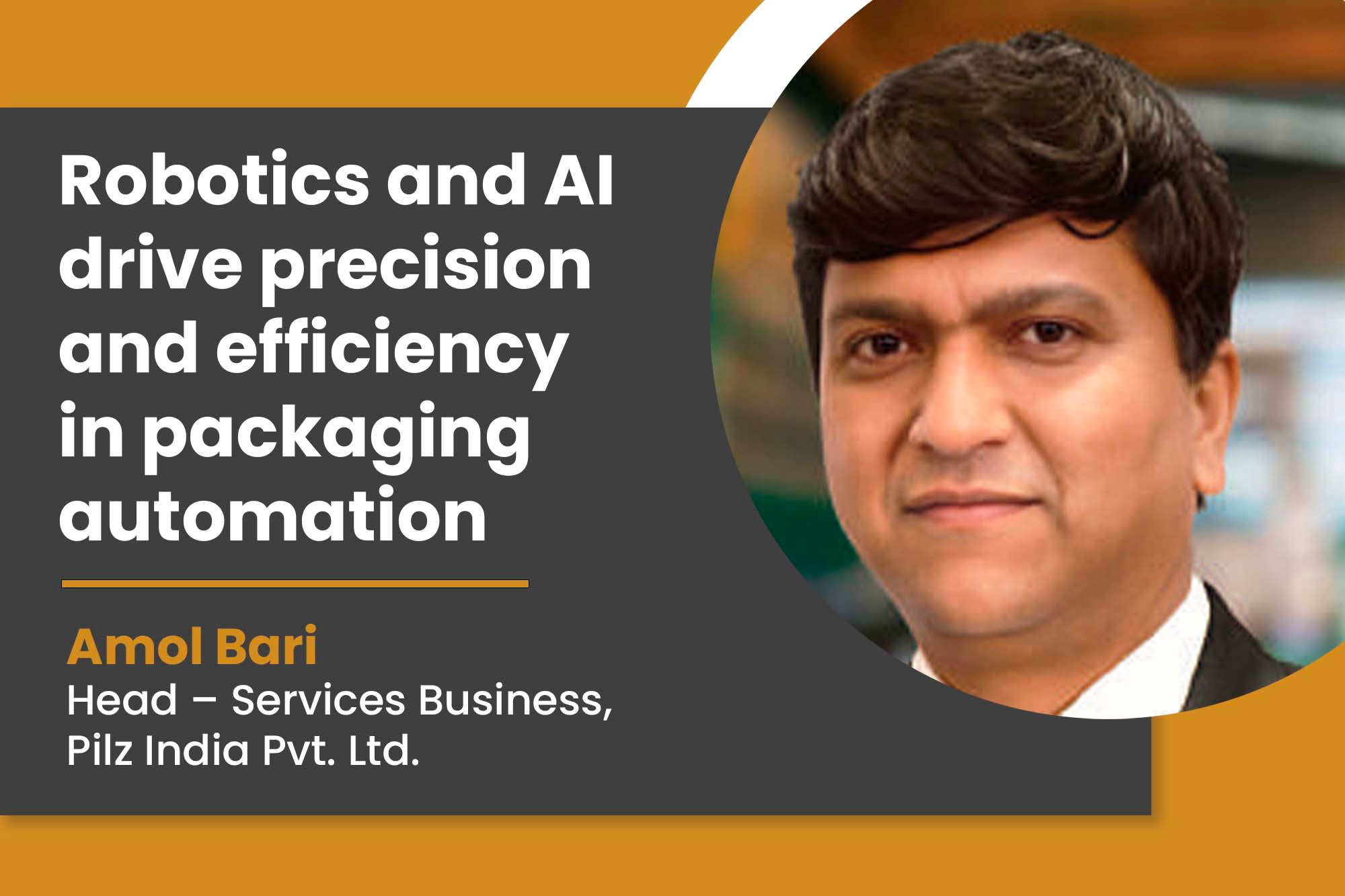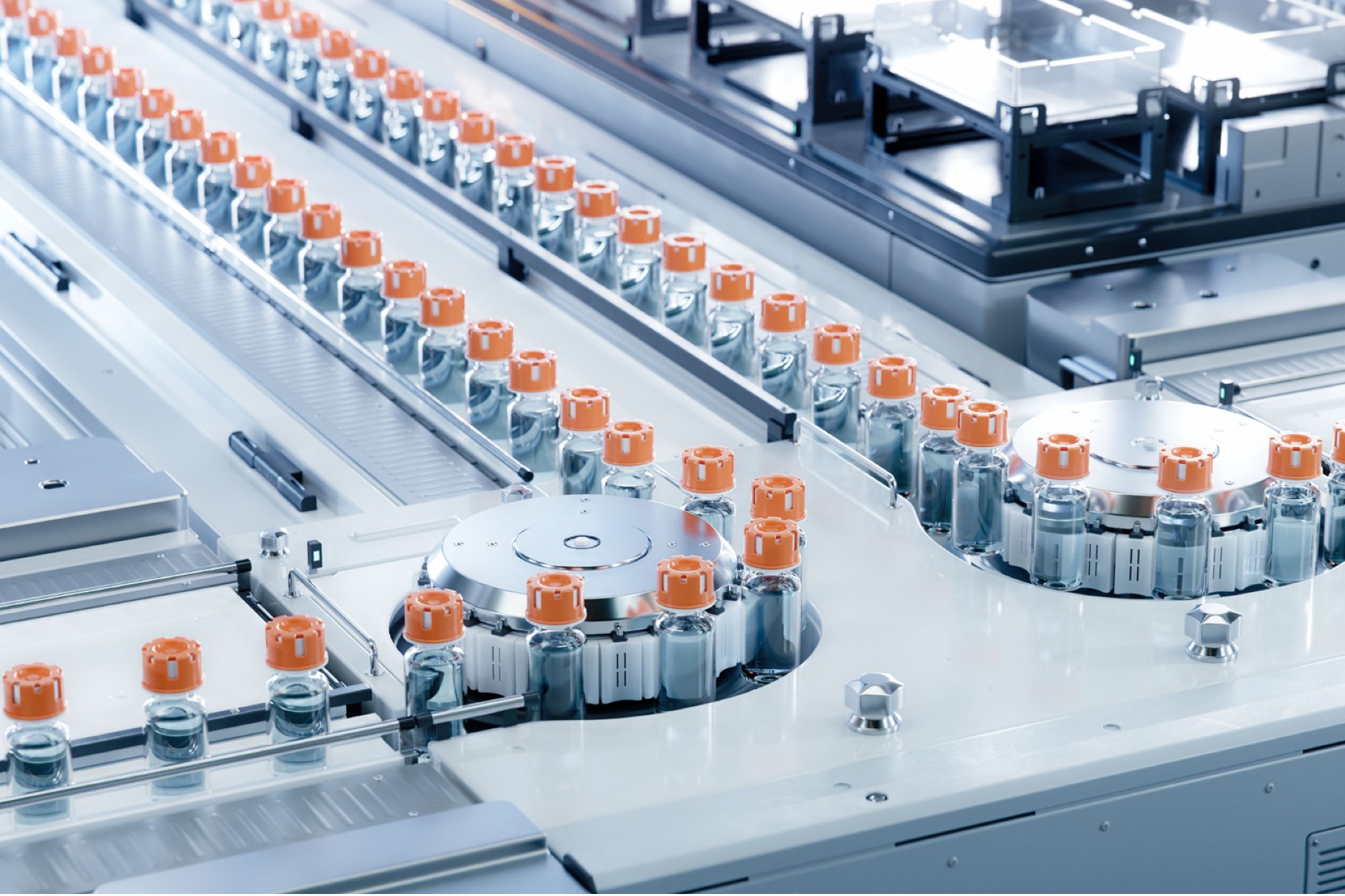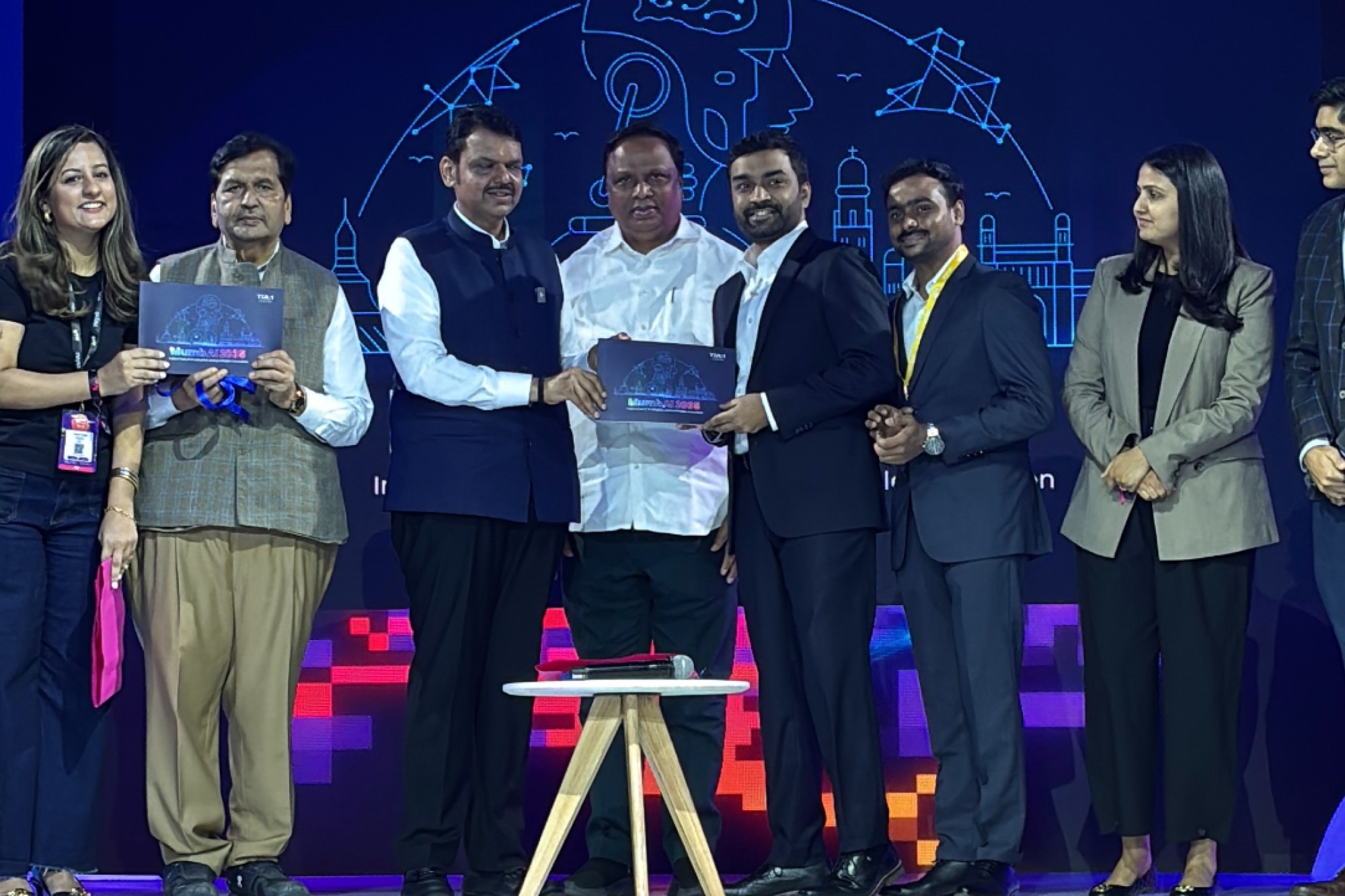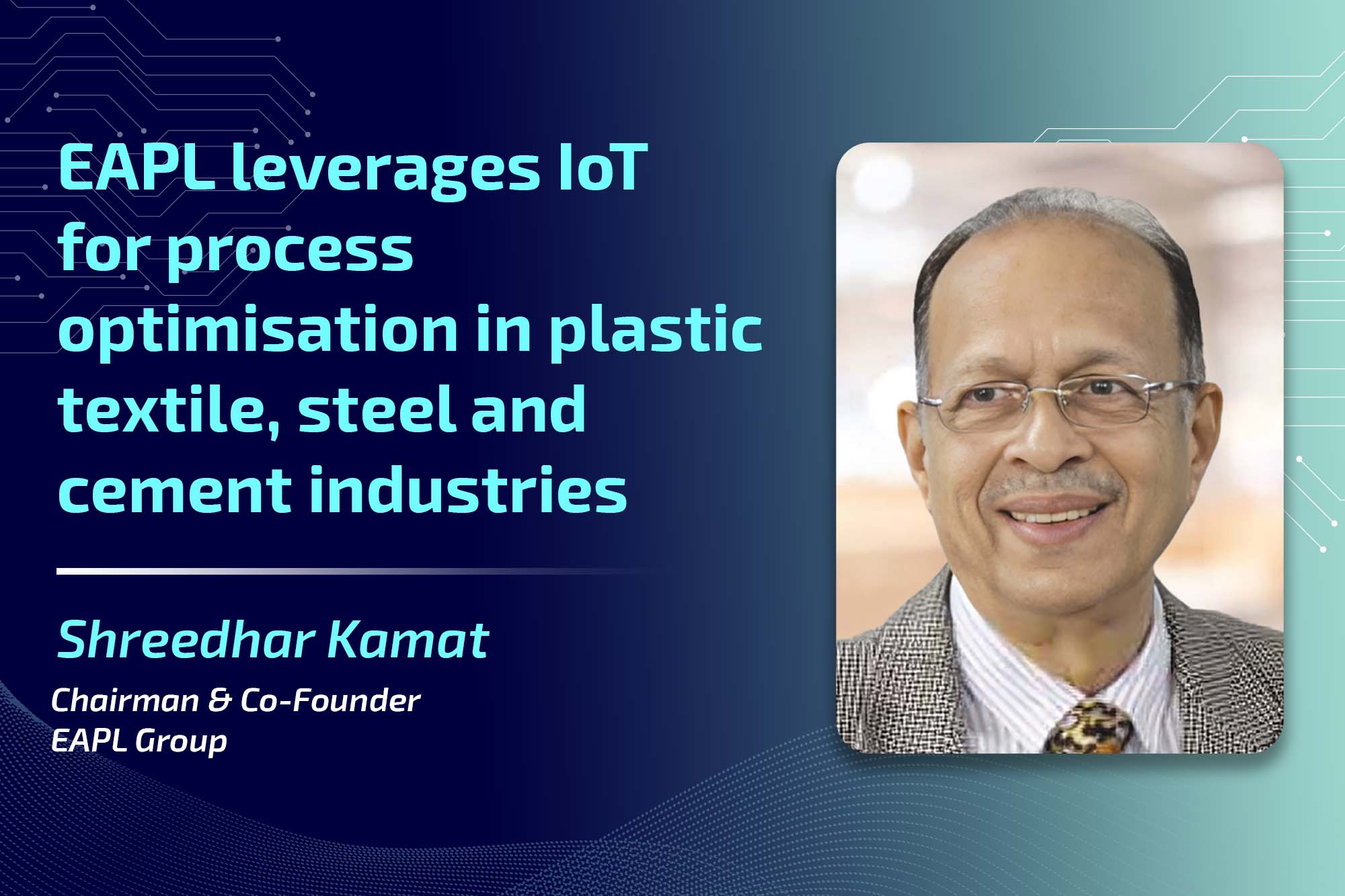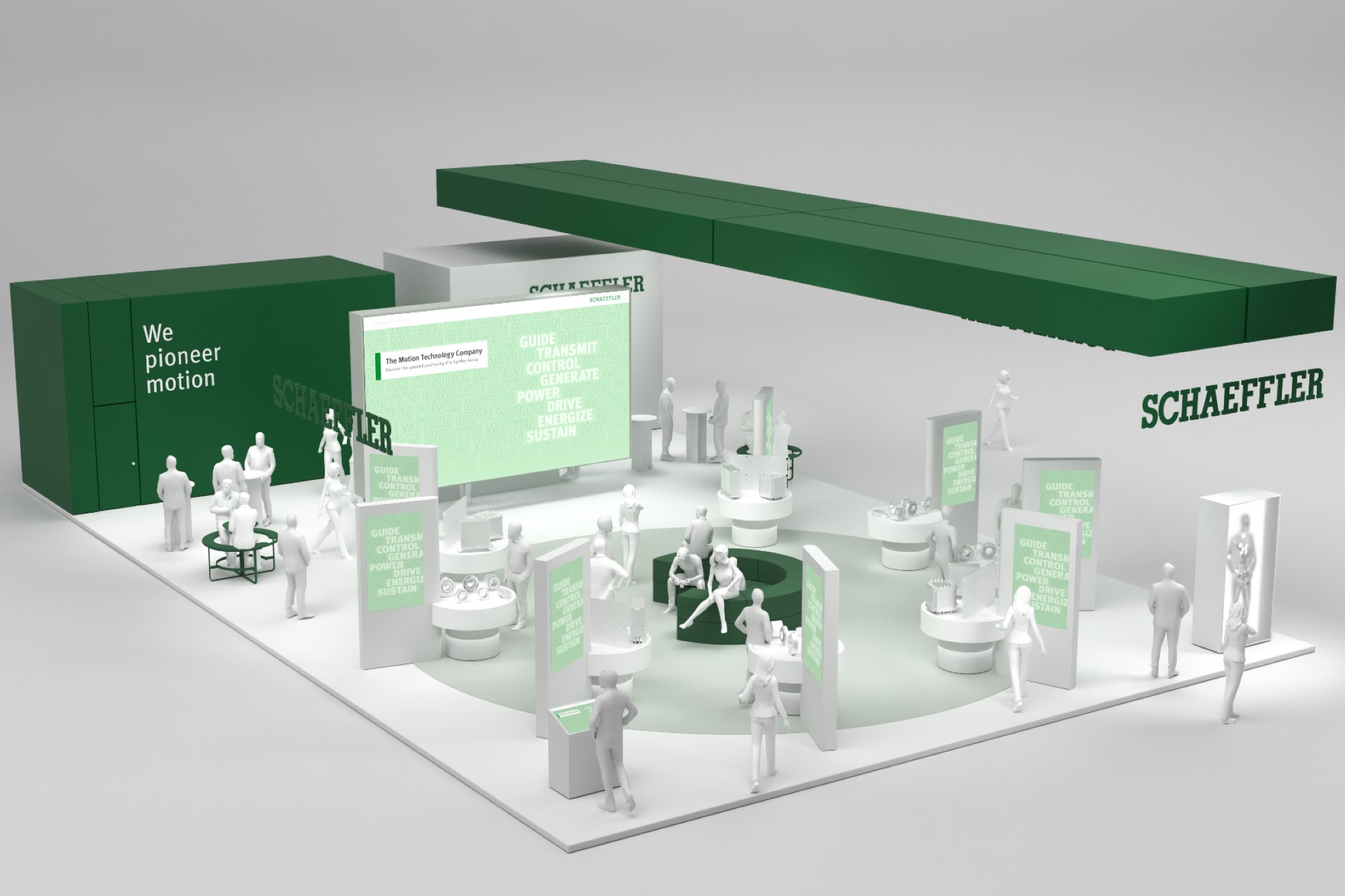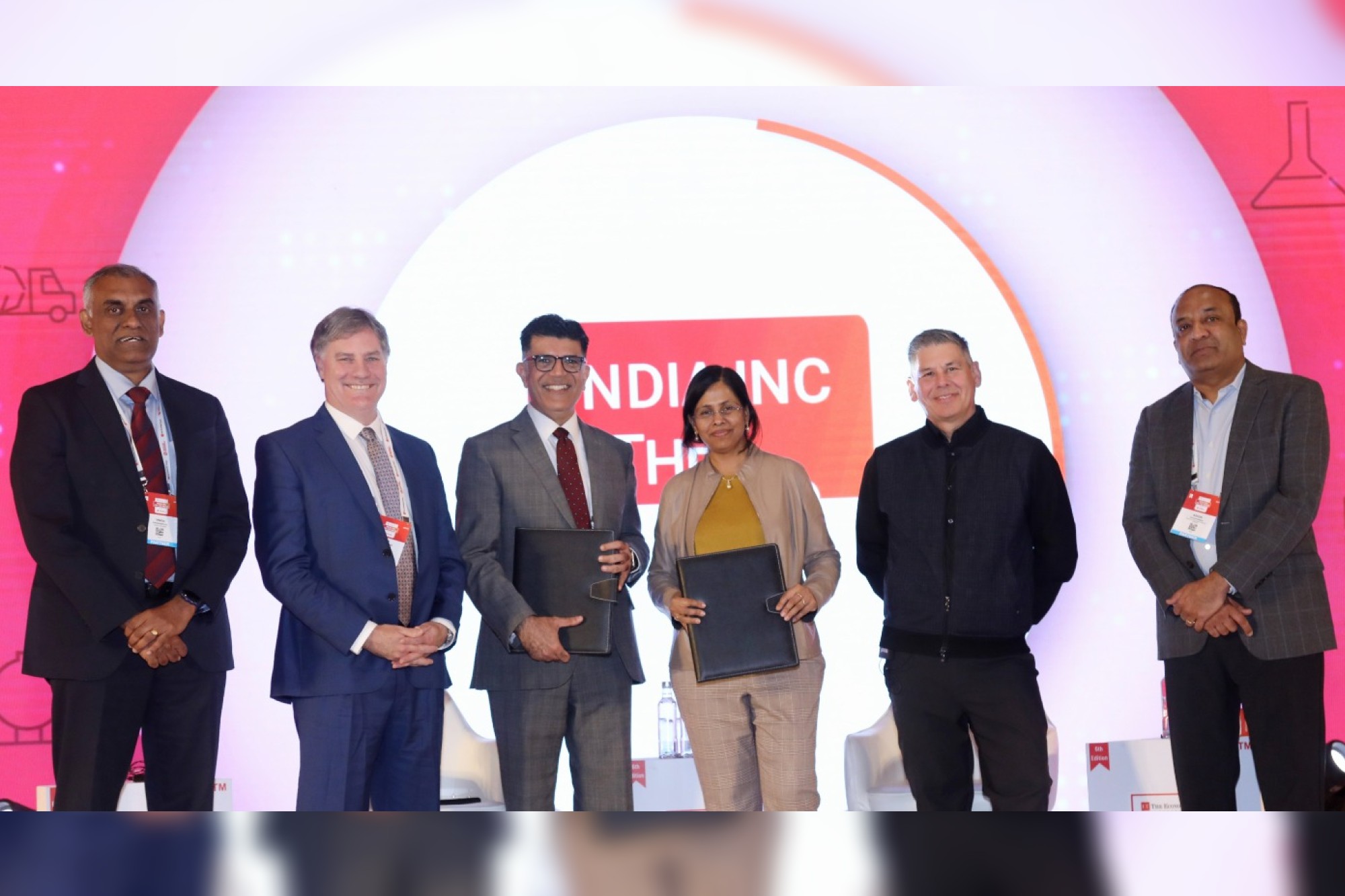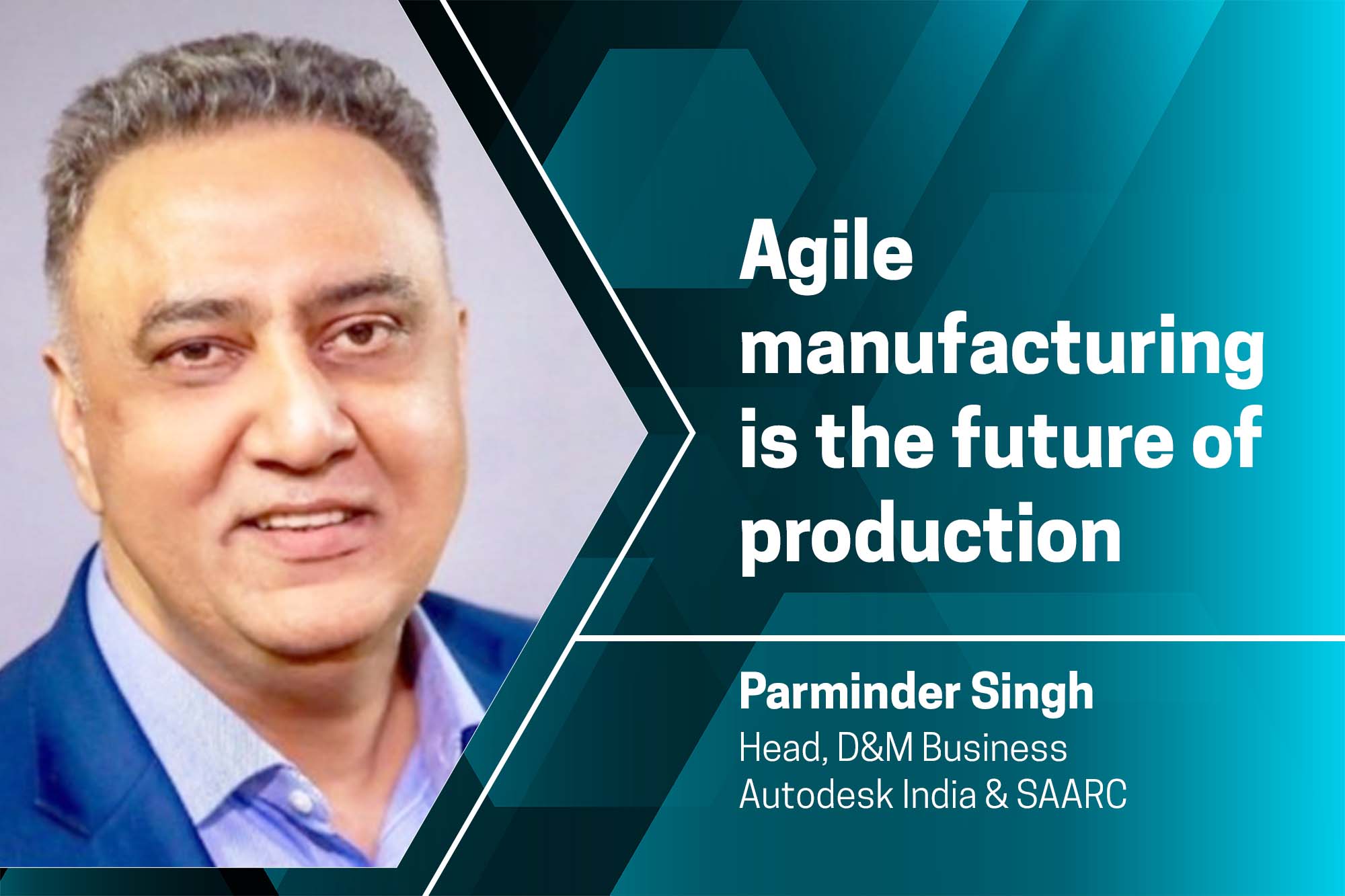Robotics and AI drive precision and efficiency in packaging automation
By OEM Update Editorial February 28, 2024 3:06 pm IST
The relentless growth of automation in manufacturing is reshaping industries and proving instrumental in addressing supply chain disruptions. Amol Bari, Head of Services Business at Pilz India, highlights how advancements in robotics and AI are transforming packaging automation processes, providing precision, adaptability, and enhanced safety.
How does Pilz ensure safety and reliability in pharmaceutical and food & beverage automation solutions?
In the pharmaceutical and food & beverage (F&B) sectors, Pilz observes how companies are utilising automation to enhance quality standards and streamline production processes. Automation is crucial in ensuring precise formulation of dosages, packaging, and labelling, optimising overall operational efficiency and adhering to food safety protocols. Additionally, in these industries, giving precedence to machinery safety is crucial due to regulatory constraints and the intricate nature of the production environment. Drawing on its extensive experience, Pilz offers structured processes and robust safeguarding systems, ensuring compliance and maintaining operational integrity across clients’ production facilities. As Team Pilz, we confidently affirm our commitment to safety and reliability, positioning us as the trusted partner for automation solutions in the pharmaceutical and F&B sectors.
What policy measures and investment initiatives are outlined in the budget to promote growth and innovation in the F&B industries and bio-manufacturing?
The 2024 budget reflects the government’s dedication to promoting growth and innovation in the food & beverage (F&B) industries and bio-manufacturing by implementing targeted policy measures and investment initiatives. Acknowledging the crucial role of these sectors in driving economic expansion and job creation, the budget allocates resources for infrastructure development, research & development, and skill enhancement.
Aligned with the government’s focus on encouraging sustainable practices and innovation, the budget introduces a new scheme for bio-manufacturing to incentivise investments in green technologies and renewable energy sources. This initiative underscores the government’s commitment to creating a favourable environment for sustainable growth and addressing environmental concerns.
Furthermore, the budget emphasises improving productivity and competitiveness in the F&B industries. It proposes measures such as modernising infrastructure, promoting technology adoption, and facilitating market access for small and medium enterprises (SMEs). F&B companies can optimise production processes, reduce wastage, and enhance supply chain efficiency by leveraging automation, digitalisation, and value-added services.
How does Pilz contribute to enhancing supply chain resilience through automation and innovative safety solutions?
Automation is important in addressing supply chain disruptions and adapting to changing consumer preferences in today’s dynamic market. The impact of the Covid-19 pandemic has highlighted the significance of agility, resilience, and digitalisation in effective supply chain management, leading companies to expedite their adoption of automation technologies. Automation allows firms to improve supply chain visibility, optimise inventory management, and manage risks associated with disruptions such as delays in transportation, labour shortages, and unpredictable shifts in demand. Using predictive analytics, real-time monitoring, and autonomous systems empowers companies to identify bottlenecks proactively, anticipate market trends, and optimise resource allocation.Moreover, ensuring safety in the supply chain is paramount for maintaining operational continuity and safeguarding workers and consumers. Pilz, leveraging its expertise in machinery safety and functional safety systems, plays a key role in assisting industries in implementing safety measures across their supply chain processes. Through adherence to regulatory standards and implementing innovative safety solutions, Pilz aids companies in improving workplace safety, minimising accidents, and ensuring compliance. This contribution enhances the overall resilience and sustainability of the supply chain.
How do you ensure safety in packaging automation, and what standards does the company adhere to in this regard?
Progress in robotics and artificial intelligence (AI) significantly influences packaging automation, offering enhanced precision, efficiency, and adaptability. Integrating robotic systems with AI-driven algorithms allows for autonomous decision-making, adaptive learning, and predictive maintenance, elevating the performance and dependability of packaging processes. Various robotics technologies, including articulated robots, collaborative robots (cobots), and autonomous mobile robots (AMRs), transform packaging operations by executing tasks such as pick-and-place, palletising, sorting, and labelling with remarkable speed and accuracy. These robots can adjust to diverse product shapes, sizes, and packaging formats, providing increased versatility and scalability. AI-powered vision systems and machine learning algorithms enable robots to perceive and respond to their surroundings in real-time, facilitating quality inspection, defect detection, and adaptive packaging. By analysing extensive visual data, AI algorithms can pinpoint anomalies, optimise packaging parameters, and ensure adherence to quality standards.
Ensuring safety in packaging automation is imperative to safeguard both workers and consumers. Pilz, a reliable provider of safety solutions, plays a vital role. Proficient in safe human-robot collaboration (HRC), Pilz offers tailored services encompassing application analysis, risk assessment, and CE marking, ensuring seamless integration of safety functions throughout the packaging process. Compliant with standards like DIN EN ISO 10218-2 and ISO/TS 15066, Pilz’s safety solutions guarantee the necessary safety level for human-robot interaction. Additionally, Pilz conducts training courses on robot safety, empowering organisations with the knowledge and skills to maintain secure and efficient packaging operations. By prioritising safety alongside advancements in robotics and AI, Pilz contributes to shaping a future where packaging automation is efficient, innovative, and secure.
What factors contribute to the steady growth of automation in manufacturing, and how are technologies integrating AI, IoT and robotics influencing the adoption of automated systems?
In 2024, the growth of automation in manufacturing is projected to persist steadily. Technological advancements, a focus on efficiency, and cost-effectiveness drive the evolution of industrial automation. With continuous developments in software solutions and robotics, automation is becoming more accessible and indispensable in manufacturing processes. This increased accessibility is fuelling adoption across diverse industries as manufacturers acknowledge the strategic significance of incorporating automation to stay competitive. Automation provides various benefits, from streamlining production processes to meeting consumer demands.
Additionally, the convergence of technologies like Artificial Intelligence (AI), the Industrial Internet of Things (IIoT), and robotics enhances automated systems, enabling features such as predictive maintenance, real-time monitoring, and data-driven decision-making. The anticipated acceleration in the growth of automation in manufacturing can be attributed to ongoing technological advancements, regulatory changes, and businesses’ efforts to future-proof their operations.
Cookie Consent
We use cookies to personalize your experience. By continuing to visit this website you agree to our Terms & Conditions, Privacy Policy and Cookie Policy.



